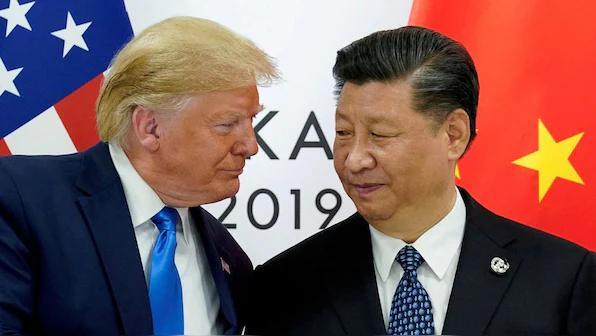
China Refuses to Join Denuclearisation Talks with US & Russia
In a move that has sent shockwaves across the global diplomatic community, China has refused to join trilateral denuclearisation talks with the United States and Russia. The decision came in response to a call by US President Donald Trump to include Beijing in future negotiations aimed at curbing the spread of nuclear weapons.
According to a report by Moneycontrol, Chinese Foreign Ministry Spokesperson Guo Jiakun stated that the expectation of China participating in such talks was “neither reasonable nor realistic”. This assertion was made in the context of China’s significant disparities with the US in terms of nuclear capabilities.
It is worth noting that China has long been a vocal advocate for the principles of nuclear non-proliferation and disarmament, both domestically and internationally. The country has played a crucial role in shaping global efforts to prevent the proliferation of nuclear weapons, particularly through its membership in the Nuclear Non-Proliferation Treaty (NPT).
However, China’s decision to decline the invitation to join denuclearisation talks with the US and Russia is likely to be viewed with skepticism by many observers. The move is seen as a potential setback to global efforts to reduce the threat posed by nuclear weapons, and may further complicate an already complex international landscape.
The decision to refuse participation in the talks is also likely to fuel growing concerns about China’s nuclear ambitions. While China has consistently maintained that its nuclear arsenal is purely defensive in nature, many experts believe that the country’s rapidly expanding nuclear capabilities pose a significant threat to regional and global stability.
In recent years, China has made significant strides in modernising its nuclear arsenal, with the development of new and more sophisticated nuclear weapons systems. This has led to concerns that China may be seeking to challenge the existing nuclear balance of power in the Asia-Pacific region.
The refusal of China to join the denuclearisation talks is also likely to have significant implications for the broader regional security landscape. The move may be seen as a potential challenge to the existing security architecture in the Asia-Pacific, and could potentially exacerbate tensions between China and its regional rivals.
In the context of the escalating tensions between the US and China, the decision to refuse participation in the talks is also likely to fuel concerns about the potential for conflict in the region. The move may be seen as a sign of China’s increasing assertiveness, and could potentially contribute to a deterioration in relations between the two countries.
Despite the potential implications of China’s decision, it is clear that the country remains committed to the principles of nuclear non-proliferation and disarmament. In recent years, China has made significant efforts to promote international cooperation on nuclear issues, and has played a key role in shaping global efforts to prevent the proliferation of nuclear weapons.
The country has also been at the forefront of efforts to promote the development of new international institutions and frameworks aimed at addressing the challenges posed by nuclear weapons. This includes the establishment of the International Atomic Energy Agency (IAEA) and the Comprehensive Nuclear-Test-Ban Treaty (CTBT), among others.
In conclusion, China’s decision to refuse participation in denuclearisation talks with the US and Russia is a complex and multifaceted issue. While the move may have significant implications for global efforts to reduce the threat posed by nuclear weapons, it is also likely to be viewed as a sign of China’s growing assertiveness in the regional and global arenas.
As the international community continues to grapple with the challenges posed by nuclear weapons, it is clear that China’s refusal to join the talks will be closely watched by observers around the world. The move is likely to have significant implications for global security and stability, and may potentially contribute to a deterioration in relations between China and its regional rivals.



